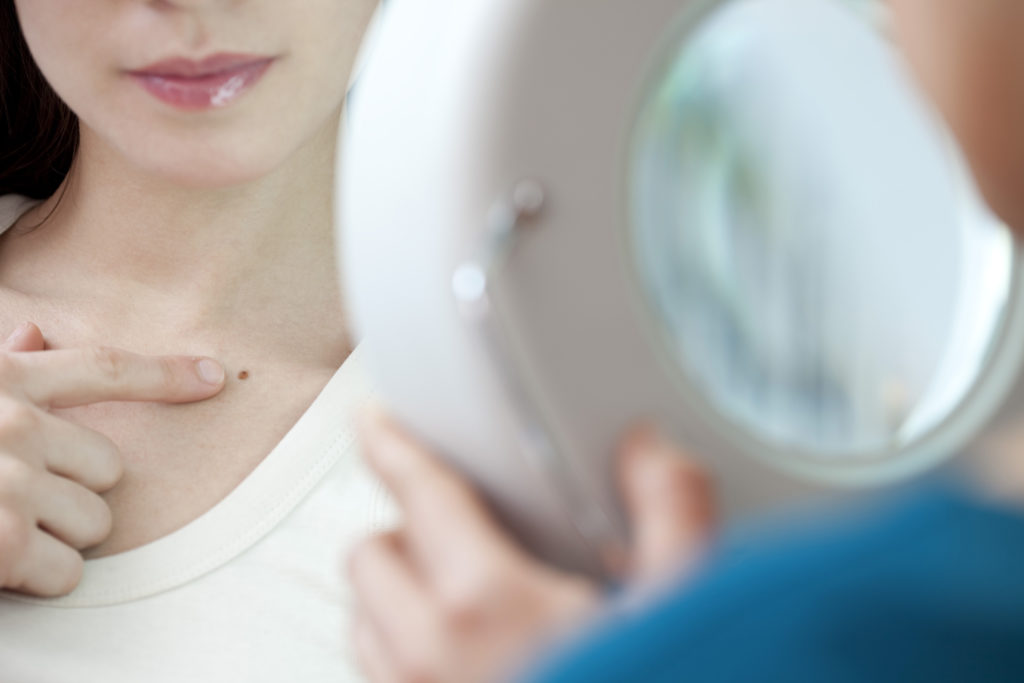Screening your skin, both professionally and by yourself, are important for many reasons. They can help to limit issues and ensure that you are able to detect substantial health concerns in the early stages. Skin cancer impacts many people, so it is important to ensure that you can detect it as early as possible. You should visit our team at Allen-Taintor Dermatology for regular skin screenings in order to provide superior protection for your health.
Professional Screenings
To provide the best protection, it will be important to ensure that you obtain skin screening from a professional dermatologist. They have the expertise that is necessary to find issues in the early stages, when treatment is more likely to be effective. By obtaining a professional screening, you will be able to provide thorough protection.
Early Prevention
Screening your skin is important because it will help to ensure that you detect problems in the early stages. By detecting these problems early on, you are often better equipped to handle them. This can often make your treatment more effective.
The Importance of Screening your Skin
 Screening your skin is essential due to the extreme prevalence of skin cancer. Studies have shown that 1 in 5 Americans will have skin cancer at some point throughout their lives. The risk of developing skin cancer will increase by a substantial amount with age, as well. As much as 50% of the people who live to be 65 or older will have skin cancer.
Screening your skin is essential due to the extreme prevalence of skin cancer. Studies have shown that 1 in 5 Americans will have skin cancer at some point throughout their lives. The risk of developing skin cancer will increase by a substantial amount with age, as well. As much as 50% of the people who live to be 65 or older will have skin cancer.
Wearing SPF
Not only is it important to detect problems early on, but it is similarly important to wear sunscreen to protect your skin. Wearing SPF 15 or higher can help to reduce your melanoma risk by 50%.
Learn your ABCDE’s
In order to effectively screen your own skin, as well as be aware of when you should see a dermatologist, you will need to know your ABCDE’s. These stand for asymmetry, border, color, diameter, and evolving. When you are concerned about a particular mole or spot, you will want to note changes in any of these categories. This can help you to detect melanoma early on.
Perform Self Examination
Self-examinations are just as important as professional screenings. You need to regularly check your own skin in addition to obtaining screenings from your dermatologist. In order to perform a self-examination, you will need a full-length mirror and a hand mirror. Use these tools to provide a thorough examination of the skin. This will be necessary to see many of the various parts of your skin that aren’t easily visible. If you see anything that concerns you, you will want to schedule an appointment with our office.
Increased Risk of Skin Cancer
There are a few factors that can result in an increased risk of skin cancer. If this is the case, you will want to ensure that you receive skin screenings more frequently in order to protect yourself. Individuals with blonde or red hair tend to be more vulnerable to the development of skin cancer. Fair skin, particularly skin that freckles or burns easily, also increases your vulnerability. Blue or light green eyes, multiple moles, and a history of skin cancer in the family may similarly impact your risk factor. In addition to these factors, your behaviors can also increase your risk. Excess sun exposure and failure to use sunscreen regularly can greatly increase your risk of developing skin cancer.
When you Should Get Professional Screenings
Most experts state that you should start to get skin screenings around your 20s or 30s. If you have particular risk factors, you may want to start getting screenings for your skin earlier than this. After you start getting screenings, you will need to get them on an annual basis in order to mitigate problems and catch any issues that may have evolved in the meantime.
Screening your skin is essential in protecting your health. When you are able to effectively screen your skin, you will be able to detect the presence of skin cancer in the early stages. You need to visit our office annually in order to obtain effective screenings. To schedule your screening with us, contact us at Allen-Taintor Dermatology today!
